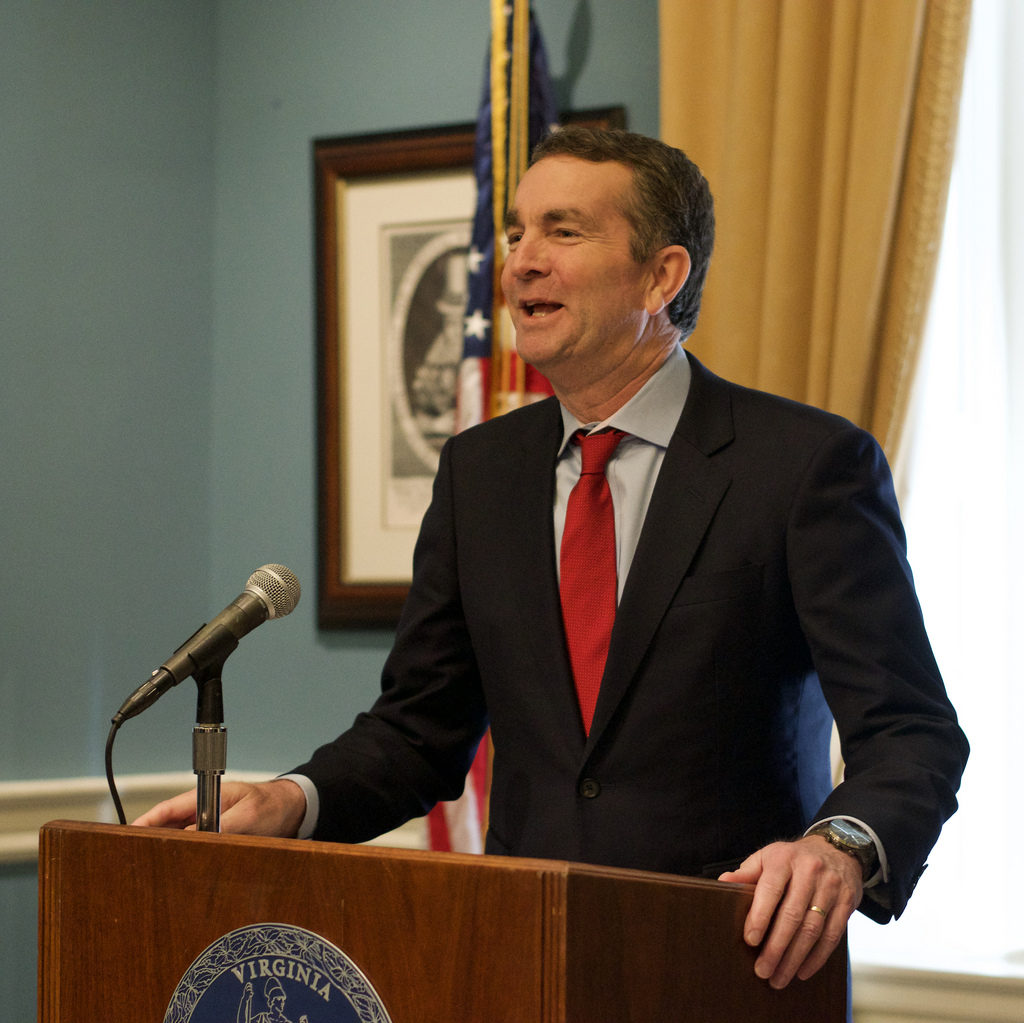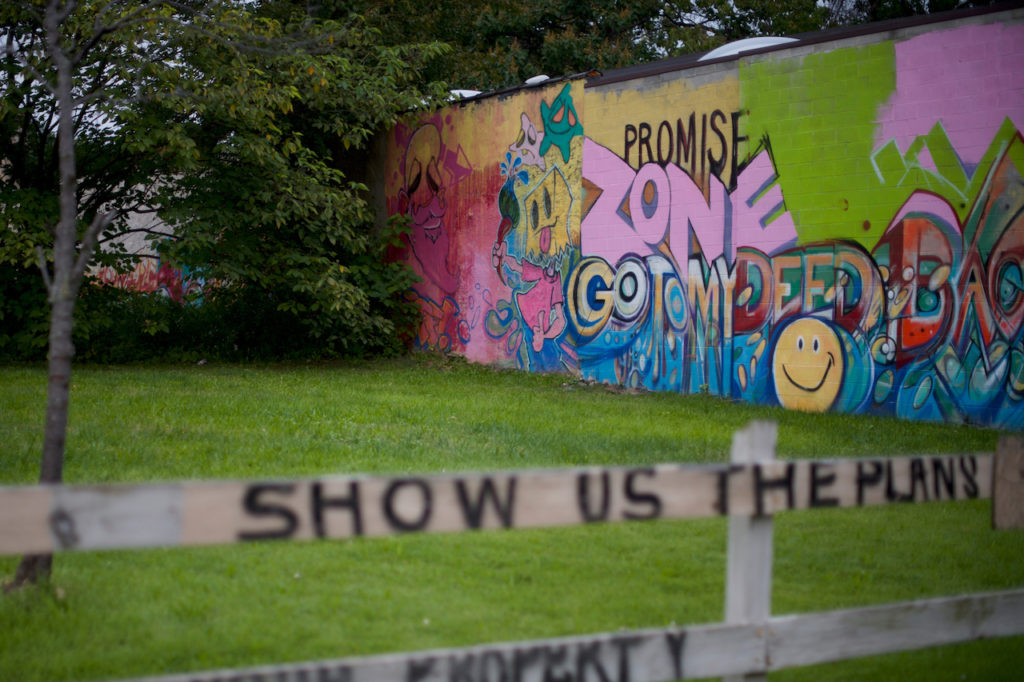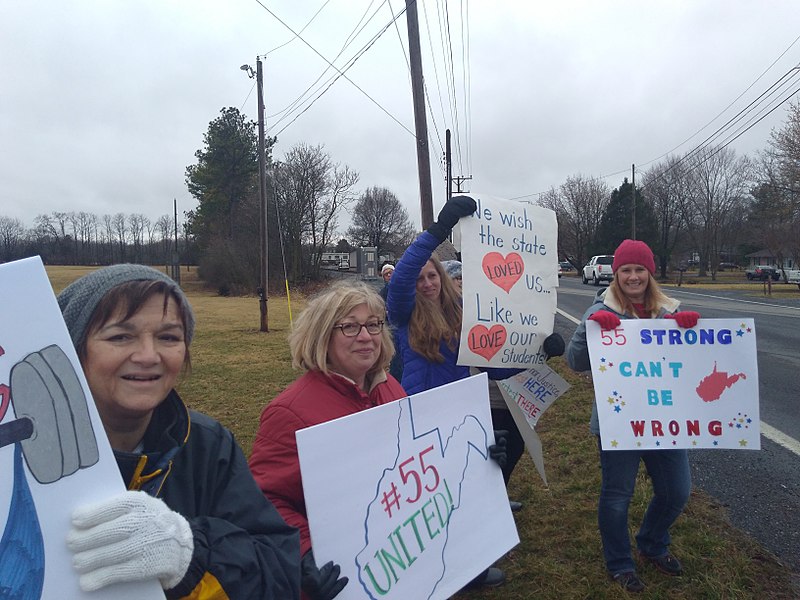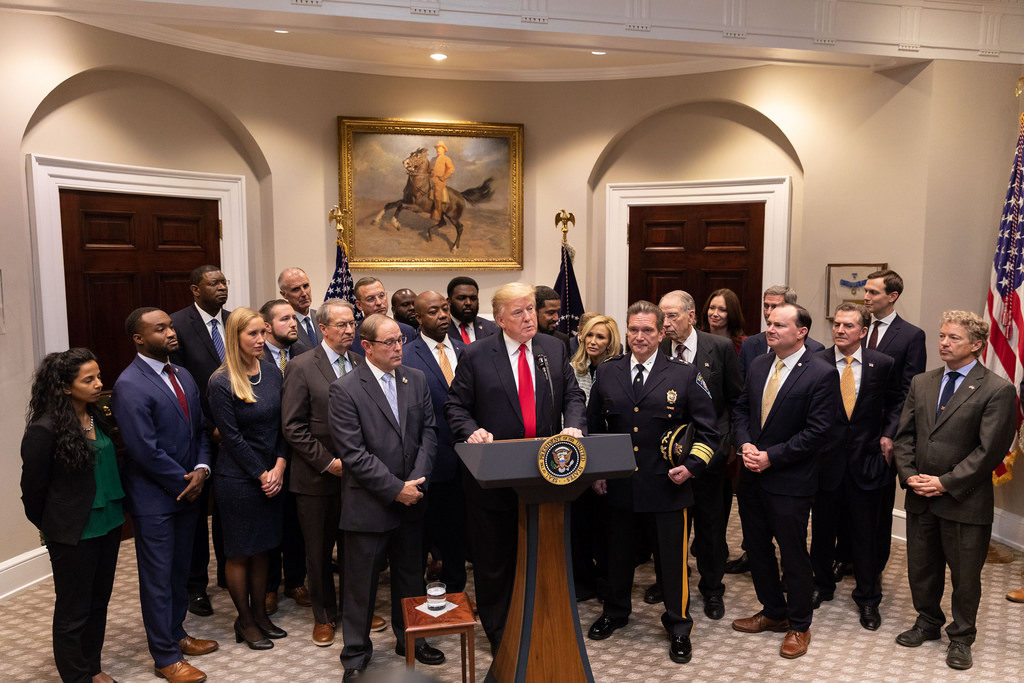15 Big Stories on Poverty and Opportunity from 2018
This year has featured discussion, debate, and in many cases, real progress on a range of issues related to poverty and opportunity. As 2018 comes to a close, we’ve compiled some of the topics that generated attention and may define the landscape around economic opportunity in 2019 and beyond:
- Economic Growth Helps Alleviate Poverty: The economy continues to grow with the U.S. now in the midst of the second longest economic expansion in history. This progress is reflected in the poverty figures as the poverty rate ticked down in 2017 from 12.7 percent to 12.3 percent and both the official and supplemental child poverty rates are at their lowest rates in at least a decade. Angela Rachidi, a Senior Researcher at Mathematica, noted the progress in a Spotlight commentary but also explained that the figures highlighted the need for further action: “Like the economy itself, poverty rates are cyclical… But as the rate of decline starts to slow, it reminds us that the economy can only do so much,” she explained.
- Medicaid Expansion Spreads: Since the Supreme Court’s 2012 ruling that states could not be compelled to expand Medicaid coverage under the Affordable Care Act, states have been divided as to whether to accept federal funding to cover low-income residents. This year saw significant movement toward expansion across a number of states. In Virginia, new Governor Ralph Northam signed expansion into law in June of this year with coverage set to begin on Jan 1, 2019. In November, voters in Idaho, Nebraska, and Utah approved Medicaid expansion through ballot initiatives while a similar measure failed in Montana. A number of incoming governors have also pledged to fight for Medicaid expansion, with Maine looking like the most likely to move quickly towards implementation next year. With Maine included, 37 states have now opted for expansion.

Virginia Governor Ralph Northam signed Medicaid expansion into law this year
- New Media Partnerships Help Raise Visibility of Poverty: Spotlight emerged out of a desire for more robust media coverage of issues affecting low-income Americans. While we’re still working toward that goal, it’s been encouraging to see a number of new publications and platforms start to focus more intently on these topics – just as Spotlight has launched its own poverty journalism project. Spotlight has partnered with a number of these new organizations over the past year to highlight their work and, in some cases, cross-publish original journalism. Among these groups are:
- Broke in Philly: A collaboration of 19 media organizations in Philadelphia launched a year-long initiative, Broke in Philly, to work together to cover issues around poverty in the city and identify solutions. Spotlight collaborated with Broke in Philly to highlight the designation of West Philadelphia as a “Promise Zone.”
- 100 Days in Appalachia: A media partnership between West Virginia University, West Virginia Public Broadcasting and The Daily Yonder, 100 Days in Appalachia is looking to provide a more varied range of perspectives on Appalachia than are normally included in national media coverage. “Appalachia, like America, is a place affected by a really diverse set of issues that can’t be condensed down to Democrats versus Republicans,” Jake Lynch, Community Engagement Editor with 100 Days in Appalachia, explained in an interview with Spotlight.
- Southerly: A one-woman independent media organization that covers ecology, justice, and culture in the American South, Southerly worked with Spotlight to explore how rural, black communities are tackling their lack of influence over electric cooperatives in the region. Nonprofit newcomer Mississippi Today also published the story.
- Outlier Media: A unique nonprofit media project based in Detroit, Outlier Media is a service journalism organization that identifies, reports, and delivers information to empower residents to hold landlords, municipal government, and elected officials accountable. Outlier and Spotlight partnered on a story about the heavy burden carried by low-income communities in revitalizing aging water systems.
- Arkansas Nonprofit News Network: Spotlight will be partnering with this new project in early 2019 with a story on the state’s work requirement policy for Medicaid recipients.

A mural states “PROMISE ZONE” and a fence states “SHOW US THE PLANS” in Philadelphia
- Work Requirements Generate Debate: The question over whether to institute or expand work requirements for benefit programs took center stage in 2018. With the Farm Bill up for reauthorization this year, many Republicans pushed for significant reforms to the Supplemental Nutrition Assistance Program (SNAP), which is funded through the bill. While the House version of the reauthorization included many other reforms to eligibility requirements, work requirements were ultimately left out of the final legislation passed by the House and Senate. Similarly, the Trump administration announced this year it was open to allowing states to implement work requirements in their Medicaid programs through a waiver process. To date, 14 states have applied for or received waivers to institute work requirements. Over the past year, Spotlight featured pieces both for and against these types of regulations.
- Gates Enters the Poverty Space: In May, The Bill & Melinda Gates Foundation announced its first major foray into combatting poverty and promoting opportunity in the U.S. with a four-year $158 million commitment. “We want to invest in promising approaches to help workers who are in low-mobility jobs,” explained Gates Foundation CEO Sue Desmond-Hellman. “We also want to be able to increase the capacity of local actors, particularly governments, so that they can accurately diagnose and make data-driven decisions.”
- States Raise Wages: Minimum wage increases went into effect in 18 states at the beginning of the year, either through newly enacted legislation or scheduled increases. Meanwhile, voters in Missouri approved a measure that will gradually increase the state’s minimum wage from $7.85 an hour to $12 an hour over the next five years while Arkansas approved a measure that will increase its wage from $8.50 to $11 an hour by 2021.
- Labor Strikes Gain Steam: The 2018 teacher’s strike in West Virginia generated significant attention, as roughly 20,000 teachers across the state went on strike for two weeks to protest low pay and rising healthcare costs. The strike led to a five percent pay increase for teachers and inspired other labor actions in several other states across the country. The news wasn’t all positive for labor unions, though. In June, the Supreme Court ruled that non-union public sector workers must be allowed to opt-out of union fees that cover collective bargaining.

Teachers on strike in West Virginia (image via Wikimedia Commons)
- States Expand Tax Credits: A number of states moved to increase the impact of their state Earned Income Tax Credit to help raise pay for low-income workers and their families. Louisiana, Massachusetts, New Jersey, and Vermont all expanded their tax credits; meanwhile, California and Maryland expanded access to their EITCs to workers without children.
- Opportunity Zones Emerge as New Tool: The Tax Cuts and Jobs Act of 2017 included a provision to incentivize private investment in low-income communities across the country. In December, President Trump worked to bolster these Opportunity Zones through the creation of the White House Opportunity and Revitalization Council, which will look for ways to support these communities and further encourage investment through support from federal agencies. The concept of Opportunity Zones has generated significant interest from the philanthropic community and presents a potential area for public-private cooperation around poverty and opportunity in the years ahead.
- Universal Basic Income Enters the Mainstream: The rise of automation and the desire to find new ways to fight poverty has generated increased interest in the concept of a universal basic income – direct, no-strings-attached cash payments to individuals and families. The idea has found some support on both the right and the left while also generating critiques as well. Spotlight’s coverage of the issue in 2018 included an interview with The Atlantic’s Annie Lowrey on her new book “Give People Money: How a Universal Basic Income Would End Poverty, Revolutionize Work, and Remake the World” and a conversation with Stockton, CA Mayor Michael Tubbs, whose city is introducing the country’s first basic income pilot.
- Criminal Justice Reform Generates Broad Support: President Trump has voiced his support for the bipartisan First Step Act, which would reduce sentences and expand early release opportunities for some federal inmates, while increasing investment in anti-recidivism programs. The reform still faces opposition from some Republican Senators, but Majority Leader Mitch McConnell brought the bill up for debate this month, with final passage likely before the end of the year.In Florida, voters approved Amendment 4, which restores voting rights for most people with felony convictions upon completion of the terms of their sentence. The law could restore voting rights to up to 1.4 million people in the state.

President Trump announces First Step Act (Official White House Photo by Joyce N. Boghosian)
- Congress Approves Child Care Funding: In March, congress approved an omnibus spending package which included a bipartisan provision to increase funding for the Child Care Development Block Grants to over $5.2 billion. This is the largest increase to the grant in the history of the program and doubles the program’s discretionary funding levels from 2017, allowing states to improve the quality of child care for working families. The bill also increased funding for Early Head Start & Head Start and the Preschool Development Grants Program.
- Move to Redefine Public Charge: The Trump administration proposed an expansion of the definition of “public charge,” which examines how likely it is that immigrants will become dependent on government safety net programs. The administration has significant broadened the number of programs that would be considered in making a public charge ruling to include the Supplemental Nutrition Assistance Program (SNAP), public housing (including the housing choice voucher program), Medicaid, and the Medicare Part D program. The public comment period for the rule, which would give immigration case workers greater latitude to deny legal U.S. residency, ended Dec. 10. About 200,000 comments were received and the administration must show it has responded to concerns before the rule could take effect.
- New Paid Leave Ideas Emerge: Democrats and Republicans have pushed forward new visions for paid family and medical leave. Rep. Rosa DeLauro (D-Conn.) and Sen. Kirsten Gillibrand (D-N.Y) introduced the Family and Medical Insurance Leave (FAMILY) Act which would provide a variety of benefits including up to 12 weeks of paid leave for childbirth or other family issues. On the Republican side, Marco Rubio introduced a bill that would finance paid leave by allowing parents to withdraw savings from their Social Security benefits while Ivanka Trump continued her push for potential bipartisan legislation.
- Trump Administration Builds Expertise in Family Services: In August, Lynn Johnson was confirmed by the Senate as to be Assistant Secretary for Family Support at the Department of Health and Human Services with oversight for programs including the Office of Child Care, the Office of Head Start, and the Office of Family Assistance. Johnson was previously the executive director of the Department of Human Services in Jefferson County, Co., and also chief of staff to former Colorado Lt. Gov. Jane Norton.
